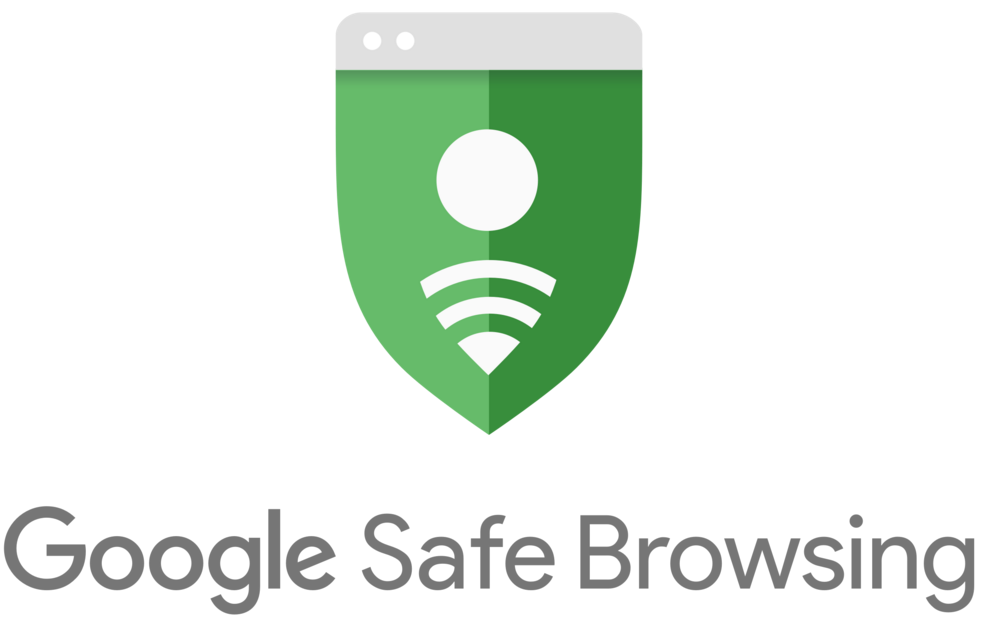Unemployment insurance updates: what you need to know

Anúncios
Unemployment insurance provides financial assistance to eligible individuals who lose their jobs through no fault of their own, with various criteria informing eligibility and applications.
Unemployment insurance updates are essential for anyone navigating the job market. With frequent changes and new regulations, keeping up can be overwhelming. Are you aware of how these updates could impact your benefits?
Understanding unemployment insurance
Understanding unemployment insurance is vital for anyone who may lose their job. This safety net helps individuals during tough economic times. Many people are unaware of how this system works, but it plays a crucial role in maintaining financial stability.
Anúncios
Basics of Unemployment Insurance
Unemployment insurance is a program offered by the government to provide financial assistance to eligible individuals who are out of work. The main goal is to help people survive while they search for a new job. Payments vary based on previous earnings and individual circumstances.
Key Benefits
- Provides temporary financial support.
- Helps people focus on finding a job.
- Can reduce stress during a difficult time.
- Encourages economic stability for communities.
To qualify for unemployment insurance, specific eligibility criteria must be met. Generally, you must have worked for a certain period and earned a minimum amount. This ensures that only those who need it most can receive the benefits.
Many states have different rules regarding how to apply for these benefits. Some may require you to show that you actively seek work, while others may provide assistance automatically. It’s important to check your local regulations to ensure you follow the correct procedures.
Anúncios
How to Apply for Benefits
Applying for unemployment insurance can be straightforward if you have the necessary documents. Most applications can be submitted online or via phone. Prepare your identification, social security number, and employment history to make the process smoother.
- Gather necessary documents before applying.
- Use online services to submit your application.
- Follow up if you don’t receive a response.
Once your application is approved, you’ll receive benefits for a limited time, depending on state laws. This period can vary, but it’s essential to stay informed about how long you can receive support.
Recent changes in unemployment laws

Recent changes in unemployment laws have significantly impacted how individuals access benefits. Keeping up with these changes is essential for those affected by job loss. Various factors influence these modifications, including economic conditions and social needs.
New Eligibility Criteria
Many states have updated their eligibility requirements for obtaining unemployment benefits. These changes often reflect current economic realities, ensuring that help reaches those most in need. It’s crucial to understand these new criteria to apply successfully.
Expanded Benefit Periods
- In response to the ongoing economic challenges, some states have extended the duration of benefits.
- This expansion allows individuals more time to seek stable employment.
- Understanding how long you can receive benefits is vital to managing your finances.
Alongside eligibility updates, there has been a push for more comprehensive coverage. This coverage includes benefits for gig workers and those in non-traditional employment situations. As the workforce evolves, so too must the laws that protect workers.
Impact of COVID-19
The pandemic has reshaped unemployment laws across the nation. Governments implemented temporary measures to support millions suddenly unemployed due to COVID-19. These measures have begun to change as economic recovery progresses, altering how benefits are allocated.
- Many states initially provided additional federal benefits.
- As the situation continues to evolve, some states are phasing out these enhancements.
- Staying informed on these changes helps ensure you receive the right support during transitions.
For those seeking to understand how these recent law changes affect their situation, it’s essential to stay updated through reliable sources, such as government websites and local employment agencies. They will provide the most current information about how these new regulations play out in practice.
How to apply for unemployment benefits
Learning how to apply for unemployment benefits is crucial for those who find themselves out of work. The process can seem complicated, but breaking it down into steps can make it much easier. Many people might feel overwhelmed, but understanding the requirements helps ease the stress.
Preparing Your Application
Before starting your application, gather all necessary documents. Key items often include your identification, social security number, and employment history. Having everything handy will help you complete the application more efficiently.
Application Methods
- Most states offer online applications, which are convenient and quick.
- You can also apply by phone, especially if you have questions.
- Some locations may allow in-person applications at local offices.
Once you decide on the method, follow the prompts carefully. Each state has different requirements, so it is essential to pay close attention to specific directions during the application process. If you are unsure about something, don’t hesitate to ask for help.
Follow-Up Steps
After submitting your application, you may need to follow up to ensure everything is in order. You should receive a response within a few weeks. If you don’t hear anything, check in with your local unemployment office. They can provide updates on your application status.
- Stay organized by keeping a record of your application date and submission method.
- Document any communication with the unemployment office for future reference.
- Be prepared to provide additional information if requested.
During this process, remember that patience is crucial. Processing applications can take time. Staying informed and proactive can help ensure you receive the benefits you need as quickly as possible.
Eligibility criteria for unemployment insurance

Understanding the eligibility criteria for unemployment insurance is essential for anyone looking to receive benefits. Each state has its own rules, but many share common requirements. Knowing these criteria can help you determine if you qualify.
General Requirements
To be eligible for unemployment insurance, individuals usually must have been employed for a specific period before losing their job. Typically, this means you must have worked for at least a few months and earned a minimum amount during that time. This ensures that benefits go to those who have contributed to the system.
Reasons for Job Loss
- You must have lost your job through no fault of your own, such as layoffs.
- If you quit your job, you may need to provide a valid reason.
- Those fired for misconduct typically do not qualify.
When considering eligibility, it’s important to review your work history. Most states require you to provide documentation that confirms your previous employment. This can include pay stubs or tax documents showing your earnings during the base period.
Availability for Work
To qualify, you must also be available and actively seeking work. This means you should be ready to accept a job if offered. Many states require you to keep a log of your job search activities, which may include applying for jobs or attending interviews.
- Ensure you are actively looking for work.
- Maintain records of your job search efforts.
- Stay informed about job openings in your field.
Finally, individuals must be registered with their state’s employment office to receive benefits. This registration process can typically be done online and is an important step in proving your readiness to return to work.
Impact of COVID-19 on unemployment benefits
The impact of COVID-19 on unemployment benefits has been significant and far-reaching. Many individuals suddenly faced job loss due to lockdowns and business closures, making it essential to understand how these circumstances affected support systems.
Temporary Changes in Benefits
In response to the pandemic, many states implemented temporary measures to expand unemployment benefits. This included increasing benefit amounts and extending the duration of payments. These changes provided crucial relief to millions who were unemployed.
Emergency Programs
- The federal government established programs like the Pandemic Unemployment Assistance (PUA) to support those not traditionally eligible for benefits.
- Many states saw an increase in claims as workers in gig and freelance jobs applied for the first time.
- This expansion of eligibility broadened the safety net during an unprecedented economic crisis.
Moreover, the need for faster processing of applications became apparent. With the surge in claims, many state agencies worked tirelessly to improve their systems. They began offering online applications and enhanced customer service to manage the influx.
Long-Term Effects
As the economy gradually reopened, adjustments to unemployment benefits began to take shape. Some states started to phase out the additional federal support earlier than planned, causing concern amongst those still seeking jobs. It is important to stay informed about these changes as they directly affect financial stability.
- Monitoring state decisions regarding benefits is crucial for those still unemployed.
- Be aware of any upcoming deadlines or changes in application processes.
- Understanding the transition back to standard unemployment systems helps in planning your next steps.
Overall, the pandemic highlighted the need for a robust and adaptable unemployment insurance system. As the situation evolves, it’s essential to continue monitoring updates regarding benefits to ensure you receive the support you need.
Future outlook for unemployment insurance

The future outlook for unemployment insurance is a topic of much discussion as economic conditions continue to evolve. Understanding potential changes can help individuals prepare for what lies ahead. As economies recover and labor markets adjust, several trends indicate how unemployment insurance may develop.
Long-Term Reforms
Many policymakers are considering long-term reforms to unemployment insurance. These reforms aim to address gaps exposed by recent crises. Suggestions include expanding eligibility and increasing benefit amounts to better support workers during economic downturns.
Impact of Technology
- Increased use of technology may streamline the application process, making it easier for individuals to access benefits.
- Mobile apps and online portals might become standard tools for filing claims.
- Data analytics could help improve efficiency by predicting unemployment trends and needs.
Moreover, the need for flexible systems is becoming clear. As the workforce changes, with more gig and freelance opportunities, unemployment insurance programs may need to adapt to cover a wider array of employment situations. Recognizing diverse job structures is crucial in shaping effective support systems.
Economic Shifts
As economies recover from the impacts of events like the COVID-19 pandemic, there could be fluctuations in job availability. Policy adjustments to unemployment insurance will likely reflect these economic shifts. For example, if job vacancies rise, there may be fewer claims for unemployment benefits. Conversely, if industries continue to struggle, there may be increased demand for support.
- Stakeholders will need to monitor economic indicators to guide adjustments.
- Collaborations between government and employers can inform policy directions.
- Regular reviews of unemployment programs ensure they meet the needs of the changing workforce.
Ultimately, the future of unemployment insurance depends on timely responses to economic changes and the needs of workers. Staying informed and engaged with these discussions will be essential for both individuals and policymakers alike.
In conclusion, understanding unemployment insurance is crucial for navigating today’s job market. As we have seen, changes in policies and systems can significantly impact those affected by job loss. Staying informed about eligibility, application processes, and current laws ensures that individuals are better prepared to seek assistance when needed. The future of unemployment insurance also hinges on adapting to economic shifts and expanding coverage options. Engaging in conversations about these changes helps workers advocate for better support, paving the way for a more secure future.
FAQ – Frequently Asked Questions about Unemployment Insurance
What is unemployment insurance?
Unemployment insurance is a government program that provides financial assistance to eligible individuals who lose their jobs through no fault of their own.
How do I apply for unemployment benefits?
To apply for unemployment benefits, you can typically fill out an online application, call your local unemployment office, or visit in person, depending on your state.
What are the eligibility criteria for unemployment benefits?
Eligibility criteria usually include having worked for a specific period, earning a minimum amount, and being available for work.
How has COVID-19 impacted unemployment benefits?
COVID-19 led to temporary changes in unemployment benefits, including increased amounts and expanded eligibility for many individuals, including gig workers.







